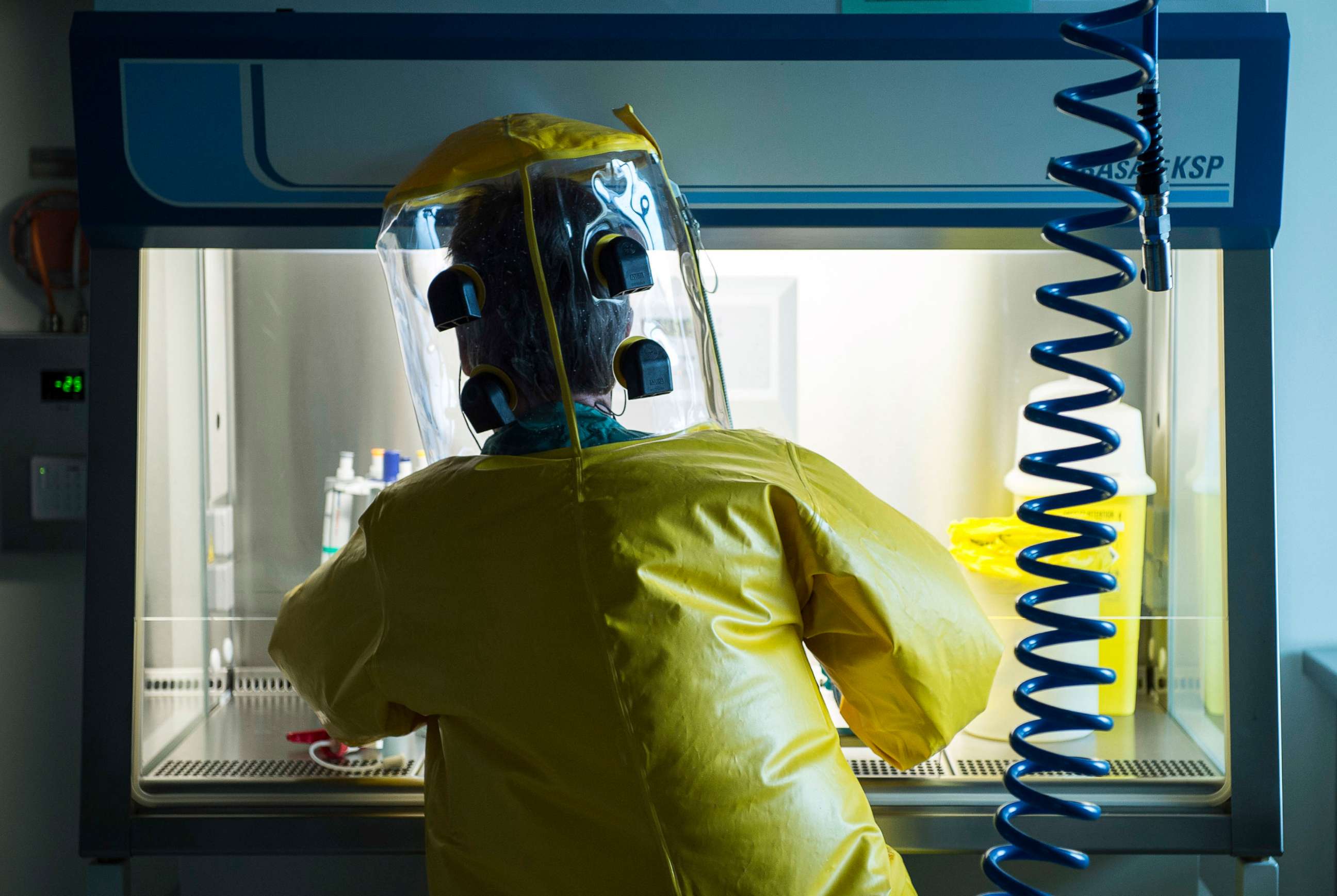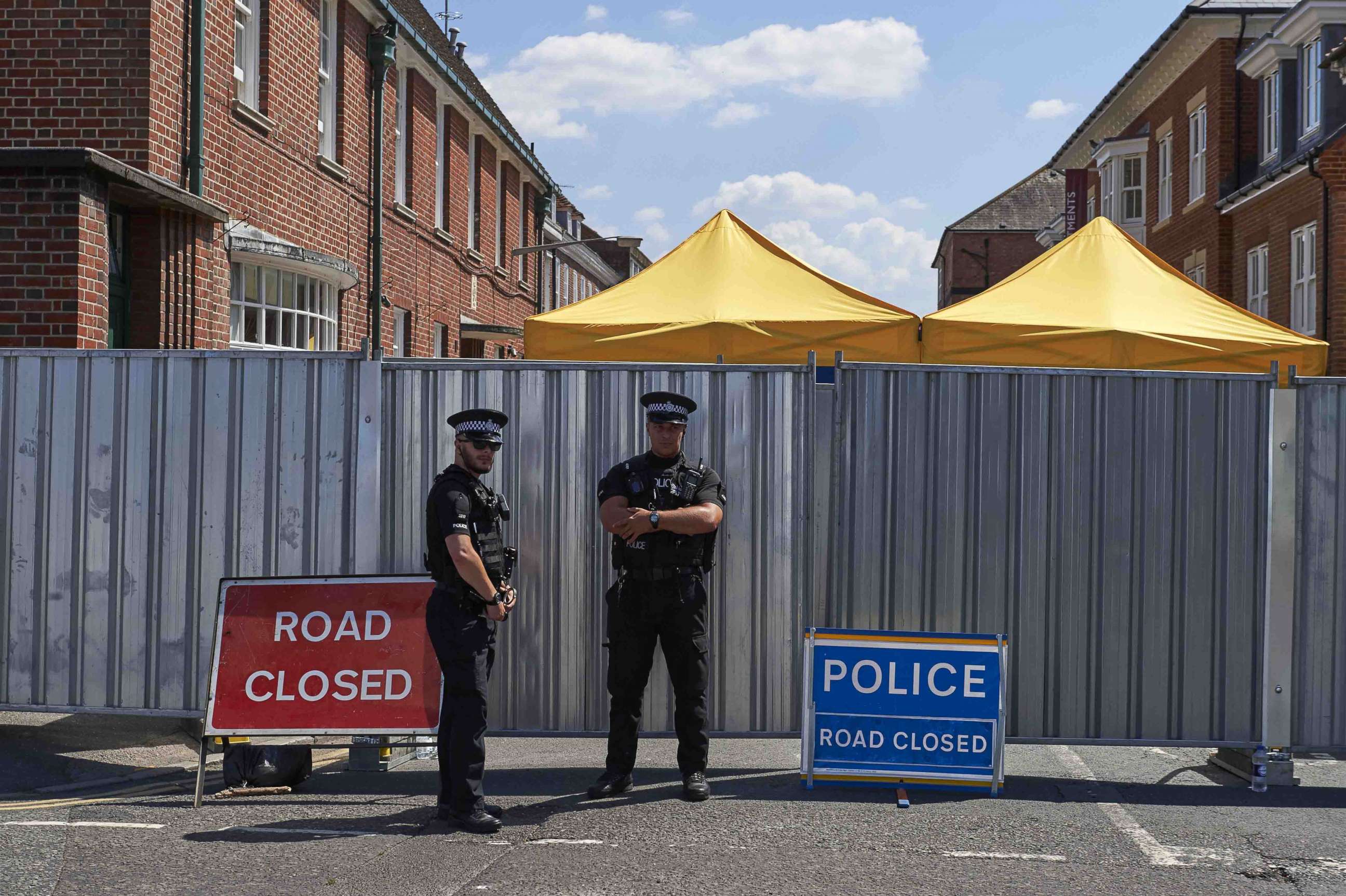Swiss government calls out Russia over attempted hack of lab analyzing nerve agent used in UK attack
The Swiss and Dutch say they foiled an operation aimed at the Spiez Laboratory.
Switzerland has demanded Russia halt "illegal activities" on its soil, after reports that two Russians were expelled for plotting a cyberattack against a Swiss chemical weapons laboratory analyzing the nerve agent used to poison former Russian spy Sergey Skripal in England, last March.
Switzerland’s foreign ministry summoned Russia’s ambassador in protest, a day after Swiss and Dutch newspapers reported the Russian operatives had been expelled earlier this year for targeting the Spiez Laboratory near Bern that analyzes chemical and biological weapons.

A combined operation by Dutch and British intelligence had uncovered two agents from Russia's military intelligence service, known as the GRU, operating in the Hague in the Netherlands back in March, according to Swiss newspaper, Tages-Anzeiger, and Dutch newspaper, NRC Handelsblad.
The Hague is home to international watchdog the Organization for the Prohibition of Chemical Weapons, or OPCW, which has been investigating the Salisbury nerve agent poisoning.
The two Russian spies had been caught and then expelled from the Hague for seeking to hack the Spiez lab, the Swiss government said. This was the third time this year that Switzerland had summoned Russia's ambassador, or chargé d'affairs, over its actions relating to the laboratory and the Skripal case, Switzerland’s foreign ministry said in a statement.
The Spiez lab has also studied samples relating to alleged chemical weapons attacks by Russia's ally, the Syrian government.
Russia has rejected the accusations. Stanislav Smirnov, the spokesman for Russia's embassy in Bern told Russia's state news agency TASS that it considered them "a bogus story made up by the Western media."
The diplomatic dispute is the latest fallout from the poisoning that almost killed the former Russian double agent Skripal and his daughter Yulia after they were exposed to the so-called "Novichok" nerve agent in March.
Russia dismissed unconfirmed reports that British police are searching for two more suspects believed to have aided the assassins, including a medic thought to have protected them from accidental contamination.

The two Russian men identified by British police as the key suspects appeared on Russian television last week in a bizarre interview. The two men, Alexander Petrov and Ruslan Boshirov —- police believe these are pseudonyms —- sat down with the editor-in-chief of the Kremlin-funded channel RT on Thursday. In the interview, they denied any involvement in the poisoning and said they had visited Salisbury as tourists to see the city’s cathedral. They also denied British allegations that they belonged to the GRU.
But on Friday, the independent British investigative group Bellingcat published what it said were Petrov’s passport files, which contained markings linked to Russian security services, including a phone number for Russia's ministry of defense.
In a scan published by Bellingcat, the alleged passport's personal details section is blank, instead marked with a handwritten note reading "There is a letter. S.S." In Russian, the letters S.S. often means "Sovershenno Sekretno" or "Top Secret." On the same page, there appears to be a stamp with the words "Do not give any information" and a telephone number.
A man who picked up at the phone number on Friday at 3 a.m. confirmed to ABC News that it was the ministry of defense. When asked if Alexander Petrov worked there, the man hung up.
A spokeswoman for Russia’s foreign ministry accused Bellingcat of being a front for Western intelligence agencies. In a statement on her Facebook page, spokeswoman Maria Zakharova asked how the investigative group could have broken into Russia’s passport database. She also attacked the group, asking why had it been able to acquire these documents, but not any evidence showing the direct involvement of Petrov and Boshirov in the poisoning attack.
A spokesman for Britain’s prime minister, Theresa May has called Boshirov and Petrov’s claims, "blatant fabrications" and an "insult to the public’s intelligence."
"Sadly, it’s what we’ve come to expect," the spokesman said after the RT interview aired.




